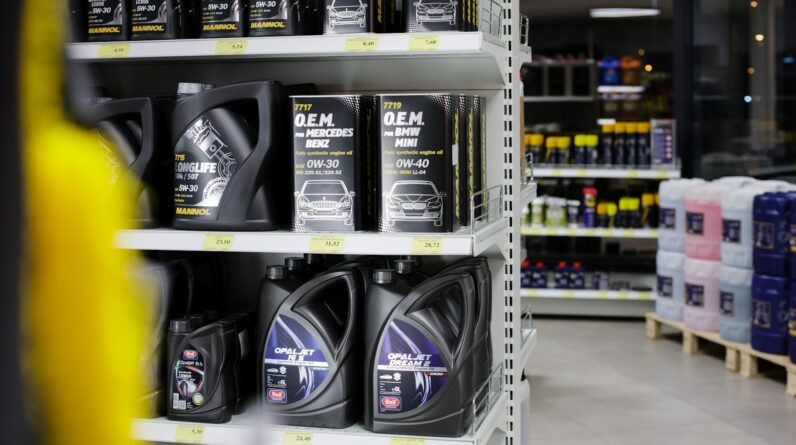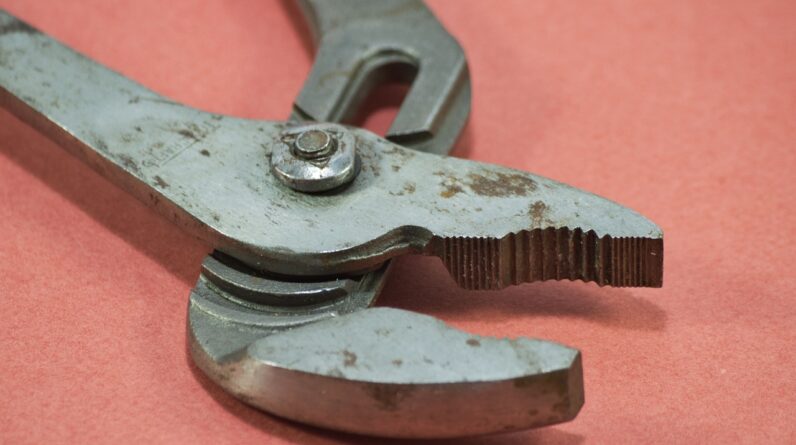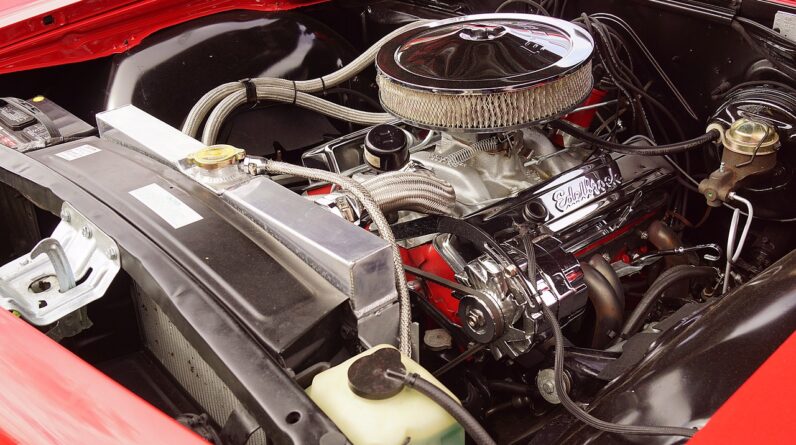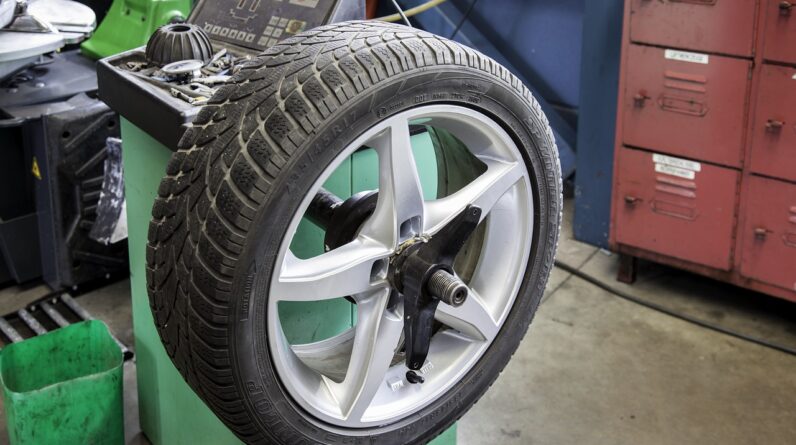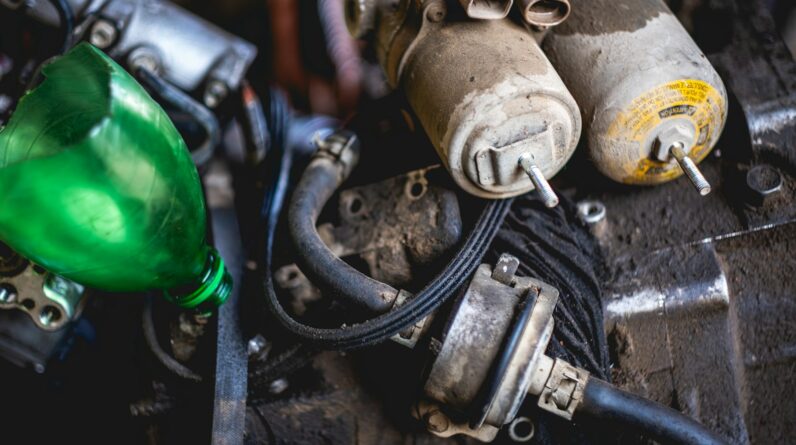
In our journey towards more sustainable living, we often seek ways to make our daily habits more eco-friendly and cost-effective. “Tips for Improving Fuel Efficiency” serves as a practical guide to help us optimize our vehicle’s performance while saving on fuel costs. From regular maintenance to adopting smarter driving techniques, these tips are designed to enhance our fuel efficiency and reduce our carbon footprint. By following these simple yet effective strategies, we can contribute to a greener environment and enjoy the benefits of a more efficient vehicle.
Have you ever wondered about ways to get the most out of every gallon of fuel in our vehicles? Whether for environmental reasons or simply trying to save some money, improving fuel efficiency is a goal worth striving for. In the following article, we’ll explore various tips and strategies that can help us achieve better fuel economy.
Understanding Fuel Efficiency
Before diving into the tips, it’s essential to understand what fuel efficiency is and why it matters. Fuel efficiency refers to how effectively a vehicle uses fuel, often measured in miles per gallon (MPG) or liters per 100 kilometers (L/100km). Higher fuel efficiency means more distance traveled per unit of fuel, which is not only cost-effective but also environmentally friendly.
Why Fuel Efficiency Matters
Improving fuel efficiency isn’t just about saving money. More efficient fuel use can significantly reduce our carbon footprint, lowering greenhouse gas emissions that contribute to climate change. By taking steps to boost efficiency, we play a part in fostering a healthier planet while also enjoying financial savings.
Tips for Improving Fuel Efficiency
Let’s delve into practical tips and strategies that we can incorporate into our daily driving habits to enhance fuel efficiency.
1. Regular Vehicle Maintenance
Keeping our vehicle in good shape is crucial for fuel efficiency. Regular maintenance ensures that all components are functioning correctly and as efficiently as possible.
Oil Changes
Regular oil changes are vital for a healthy engine. Clean oil reduces friction inside the engine, which in turn helps it run smoother and more efficiently. Follow the manufacturer’s recommendations for oil change intervals to ensure optimal performance.
Tire Maintenance
Properly inflated tires reduce rolling resistance and improve fuel economy. Check tire pressure regularly and keep them inflated to the recommended level. Under-inflated tires can lower fuel efficiency and cause uneven tire wear.
| Tire Condition | Impact on Fuel Efficiency |
|---|---|
| Properly Inflated | Optimized fuel efficiency |
| Under Inflated | Reduced efficiency and safety |
| Over Inflated | Increased wear and reduced grip |
Engine Tune-Ups
Regular engine tune-ups can catch and fix minor issues before they become costly problems affecting fuel efficiency. Replace spark plugs, check air filters, and inspect the fuel injection system according to the maintenance schedule.
2. Efficient Driving Habits
Our driving style has a substantial impact on how much fuel our vehicle consumes. Simple adjustments can lead to significant savings in the long run.
Smooth Acceleration and Braking
Aggressive driving, such as rapid acceleration and hard braking, consumes more fuel. Instead, accelerate smoothly and anticipate stops to brake gradually. This not only saves fuel but also reduces wear and tear on the vehicle.
Maintain a Steady Speed
Maintaining a consistent speed, especially on highways, enhances fuel efficiency. Use cruise control when driving on open highways to avoid frequent speed changes. This helps in maintaining a constant speed and reducing fuel consumption.
| Method | Impact on Fuel Efficiency |
|---|---|
| Smooth Acceleration and Braking | Improved MPG |
| Aggressive Driving | Increased fuel consumption |
3. Reducing Extra Weight
The more weight our vehicle carries, the harder the engine has to work, thereby increasing fuel consumption.
Regularly Clean Out the Trunk and Backseat
Remove unnecessary items from the vehicle to decrease weight. Clean out the trunk and backseat, keeping only essential items. Every hundred pounds of extra weight can reduce fuel efficiency by around 1-2%.
Remove Roof Racks When Not in Use
Roof racks and carriers can increase aerodynamic drag, which in turn reduces fuel efficiency. Remove them when not in use to decrease resistance and improve MPG.
4. Aerodynamics
Aerodynamics plays a crucial role in fuel efficiency. Reducing drag can lead to noticeable improvements in how far our vehicle can travel on a gallon of fuel.
Keep Windows Closed at High Speeds
Driving with windows open at high speeds creates additional drag and reduces fuel efficiency. Use air conditioning when traveling at higher speeds to maintain aerodynamics.
Use Aerodynamic Accessories
Consider using aerodynamic accessories like spoilers or rear diffusers designed to reduce drag. These can help streamline airflow around the vehicle, improving overall efficiency.
5. Efficient Use of Air Conditioning and Heating
Climate control systems in our vehicles can have a significant impact on fuel consumption.
Utilize Air Conditioning Wisely
Air conditioning puts an extra load on the engine. Use it wisely by opting for the recirculation mode whenever possible, and switch it off when it’s not needed. At lower speeds, consider simply rolling down the windows instead.
Dressing for the Weather
In colder weather, dress appropriately to reduce the need for excessive heating. By reducing the use of the heater, we can save fuel. Similarly, in warmer weather, dress lighter to avoid cranking up the air conditioning.
6. Planning Efficient Routes
Planning trips with fuel efficiency in mind can reduce our overall fuel consumption.
Combine Trips
Instead of making multiple short trips, try to combine errands into one longer trip. Engines are most efficient when fully warmed up, so one longer trip is more fuel-efficient than several shorter ones.
Use GPS and Traffic Apps
Use GPS and traffic apps to plan routes with minimal congestion. Avoiding traffic jams and construction zones can save both time and fuel.
7. Choosing Fuel Wisely
Not all fuels are created equal. Selecting the right fuel and using fuel additives can potentially enhance fuel efficiency.
Use High-Quality Fuel
Opt for high-quality, Top Tier gasoline, which contains more detergents to keep the engine clean. A cleaner engine runs more efficiently and can improve fuel economy.
Consider Fuel Additives
Some fuel additives claim to improve fuel efficiency by cleaning the fuel system or optimizing combustion. While not all additives may be effective, some reputable brands can offer real benefits. Consult with a professional to determine if this could be right for our vehicle.
8. Investing in Fuel-Efficient Vehicles
In the long run, investing in a more fuel-efficient vehicle can be a game-changer.
Hybrid and Electric Vehicles
Hybrid and electric vehicles offer significant fuel savings. While the upfront cost may be higher, the long-term fuel cost savings and potential tax incentives can make them a wise investment.
Smaller, Lighter Vehicles
Smaller, lighter vehicles generally consume less fuel than larger, heavier ones. If it’s time to replace a vehicle, consider downsizing to a more fuel-efficient model.
9. Idling Less
Idling consumes fuel without moving the vehicle, making it an inefficient practice.
Turn Off the Engine When Parked
If parked for more than a minute, it’s more efficient to turn off the engine. Modern engines don’t require the warm-up time they used to, so idling is often unnecessary.
Avoid Drive-Throughs
Instead of waiting in a drive-through line, consider parking and going inside. This minimizes idle time and reduces fuel consumption.
10. Educating Ourselves and Staying Informed
Staying informed about the latest advancements and tips in fuel efficiency can help us continuously improve our practices.
Follow Automotive News and Trends
Keep up with automotive news and trends to learn about new technologies and practices that enhance fuel efficiency. Innovations in the industry can provide new tools and methods for saving fuel.
Participate in Fuel Efficiency Programs
Many organizations offer programs and workshops focused on fuel efficiency. Participating in these can provide valuable insights and community support in our efforts to improve fuel economy.
Conclusion
Improving fuel efficiency is a multifaceted effort that benefits from regular vehicle maintenance, conscious driving habits, and informed choices. By implementing the tips and strategies discussed above, we can significantly enhance our vehicle’s fuel economy, save money, and reduce our environmental impact.
Remember, every little bit helps. Even small adjustments in our daily routine can lead to significant improvements over time. Let’s commit to making these changes and enjoy the many benefits that come with enhanced fuel efficiency.


